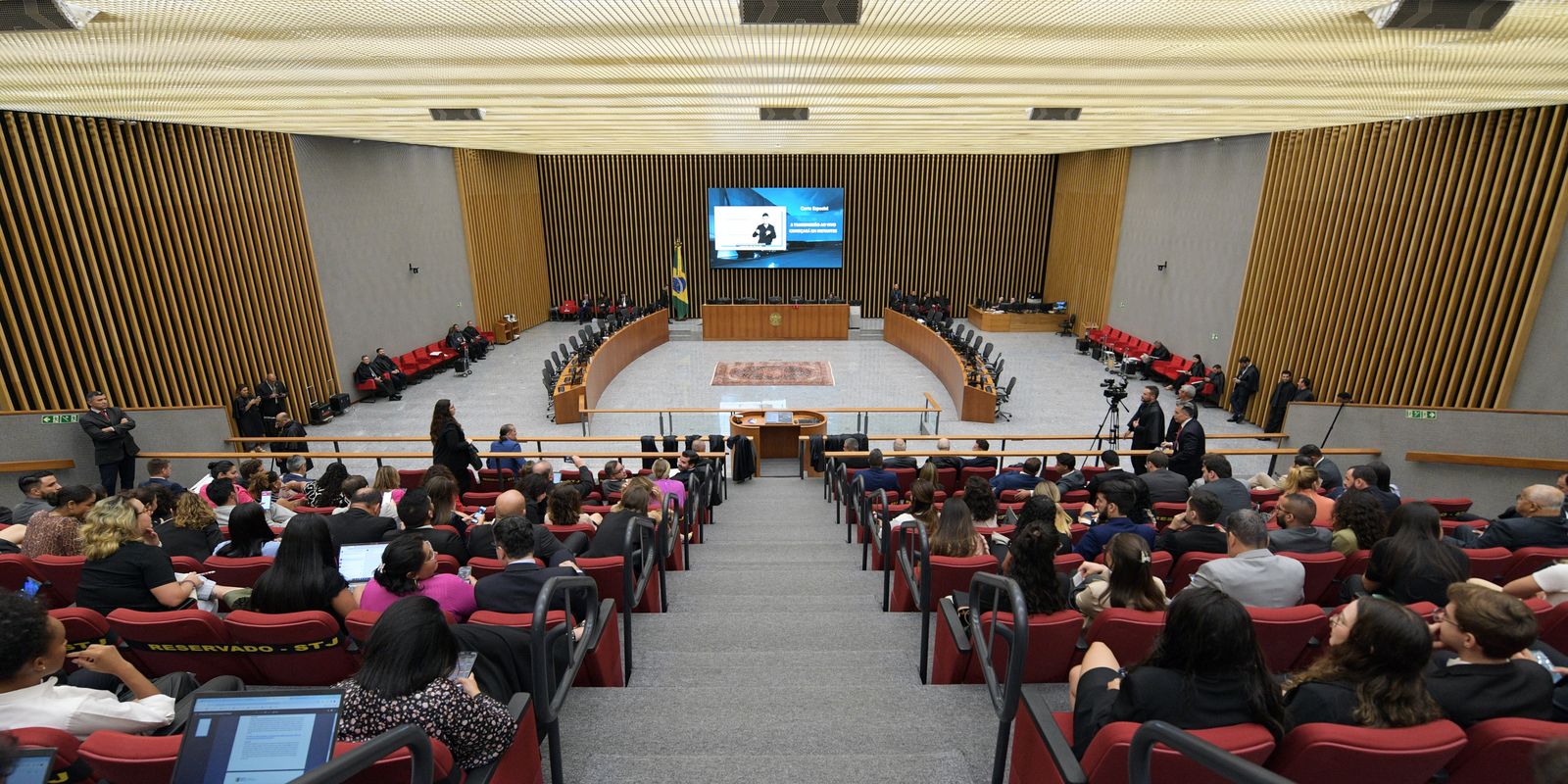The Special Court of the Superior Court of Justice (STJ) decided this Wednesday (20), by 9 to 2, that Robson de Souza, named after former football player Robinho, must serve a nine-year prison sentence in Brazil for the crime of gang rape to which he was convicted in Italy.
Former player Robinho was sentenced to nine years in prison for rape in Italy – Ivan Storti/ Santos FC/Reserved Rights
According to the decision, as soon as the approval process ends at the STJ, Robinho must be arrested in Santos, where he lives. The former player can still appeal to the Federal Supreme Court (STF), through a habeas corpus or an extraordinary resource.
“I understand that there is no constitutional or legal obstacle to the approval of the transfer of the sentence requested by the Italian Court”, stated the rapporteur of the case, Minister Francisco Falcão, first to vote.
For Falcão, as the Constitution does not allow the extradition of a native Brazilian, there is no alternative other than transferring the sentence. “When extradition is not appropriate, the transfer of execution of the sentence is required, precisely so that there is no impunity resulting from the individual’s nationality”, he pointed out.
“Defending that the penalty imposed in a foreign case cannot be executed here is the same as defending the impunity of the defendant for the crime committed, which cannot be admitted, under penalty of violating the commitments assumed by Brazil on an international level”, added Falcão. .
This is because the Brazilian legal system also prevents someone from being tried twice for the same crime, Falcão stressed. For this reason, if the sentence is not transferred to Brazil, it would result in impunity.
“If the transfer of execution of the sentence is not approved, the victim will have his dignity once again outraged, as the criminal will remain completely unpunished given the impossibility of launching a new criminal action in Brazil,” said Falcão.
Ministers Herman Benjamin, Humberto Martins, Luis Felipe Salomão, Mauro Campbell, Isabel Galotti, Antonio Carlos Ferreira, Villas-Bôas Cueva and Sebastião Reis voted as rapporteur. Ministers Raul Araújo and Benedito Gonçalves were defeated.
“Brazil cannot be a refuge for criminals,” said Campbell.
The STJ ministers did not examine the evidence and merit of the Italian Court’s decision, but judged whether all legal requirements were met for the prison sentence to be served in Brazil, as required by Italy.
The crime took place in a Milan nightclub in 2013, court records show. Robinho’s conviction was confirmed in three instances in Italy and became final, meaning there are no further appeals possible in the Italian Judiciary.
Divergence
Minister Raul Araújo was the first to disagree. For him, approval of the sentence would not be possible in the case of a native Brazilian, like Robinho, who cannot be extradited. This is because the Migration Law, which provides for the transfer of sentences to Brazil, says that the procedure only applies “in cases in which a request for enforceable extradition is applicable”.
Araújo also pointed to the bilateral treaty on legal cooperation in criminal matters, signed by Brazil and Italy and made effective by decree in 1993. The agreement provides that cooperation in criminal matters does not apply “to the execution of sentences restricting freedom”.
The minister began his vote by remembering that the guarantees of the Constitution that protect native Brazilians are valid for everyone, although only when we need them, which we tend to remember. “Guarantees only concern us and are especially expensive and very noticeable when we sit in the dock or when we have a conviction”, stated Araújo.
He denied that his vote was in favor of impunity. “The absence of legal requirements [para a homologação] does not result in impunity. [Robinho] will be subject to trial and prosecution in Brazil,” said Araújo. For him, the rule of the Penal Code would apply to the case, according to which a native Brazilian can be prosecuted in Brazil for events abroad.
In a brief vote, minister Benedito Gonçalves followed the divergence.
Supports
Before the rapporteur, Robinho’s defense argued that the transfer of the foreign sentence would be unconstitutional, as it would void the fundamental right of non-extradition of native Brazilians. Furthermore, lawyer José Eduardo Alckmin, who represents Robinho, pointed out that bilateral treaties between the two countries expressly prohibit legal cooperation for the execution of restrictive sentences.
Another argument was that the Migration Law (Law 13,445/2017), which provides for the institution of transferring the execution of sentences, was approved in 2017, while the criminal events occurred in 2013. Alckmin argued that the rule has a criminal nature, and therefore, it could not be retroactive to harm the defendant. “In view of our Constitution, it could not be retroactive to reach an event that occurred before its entry into force”, argued the lawyer.
The rapporteur, however, refuted all arguments. On the last point, Falcão understood that the rule that allows the transfer of the sentence has a procedural nature, and is therefore immediately applicable, including to facts from the past. “The Migration Law is perfectly applicable to the specific case”, he stated.
This was the argument of the Attorney General’s Office (PGR), which also defended the transfer of the sentence. “The impunity of a Brazilian who committed a crime abroad cannot be allowed simply because Brazil does not extradite him,” said the deputy attorney general of the Republic, Hindemburgo Chateaubriand.
